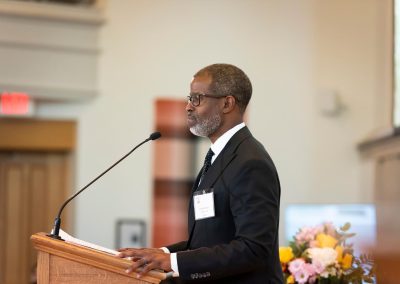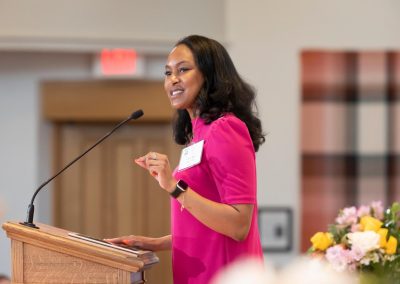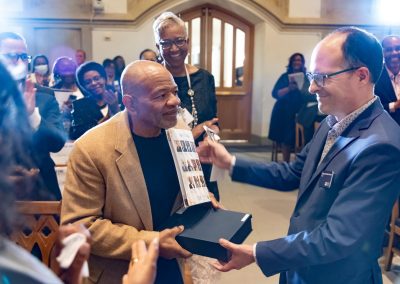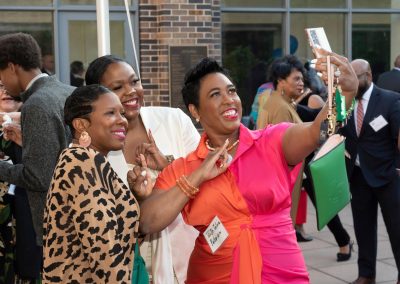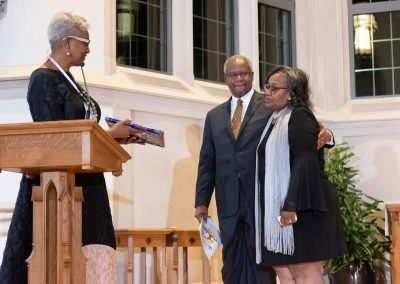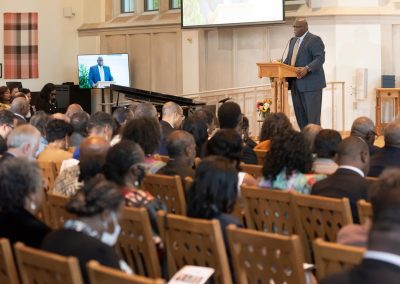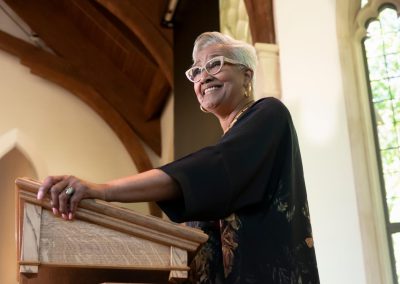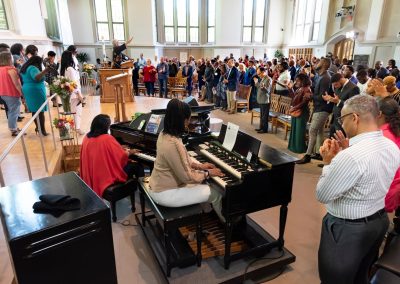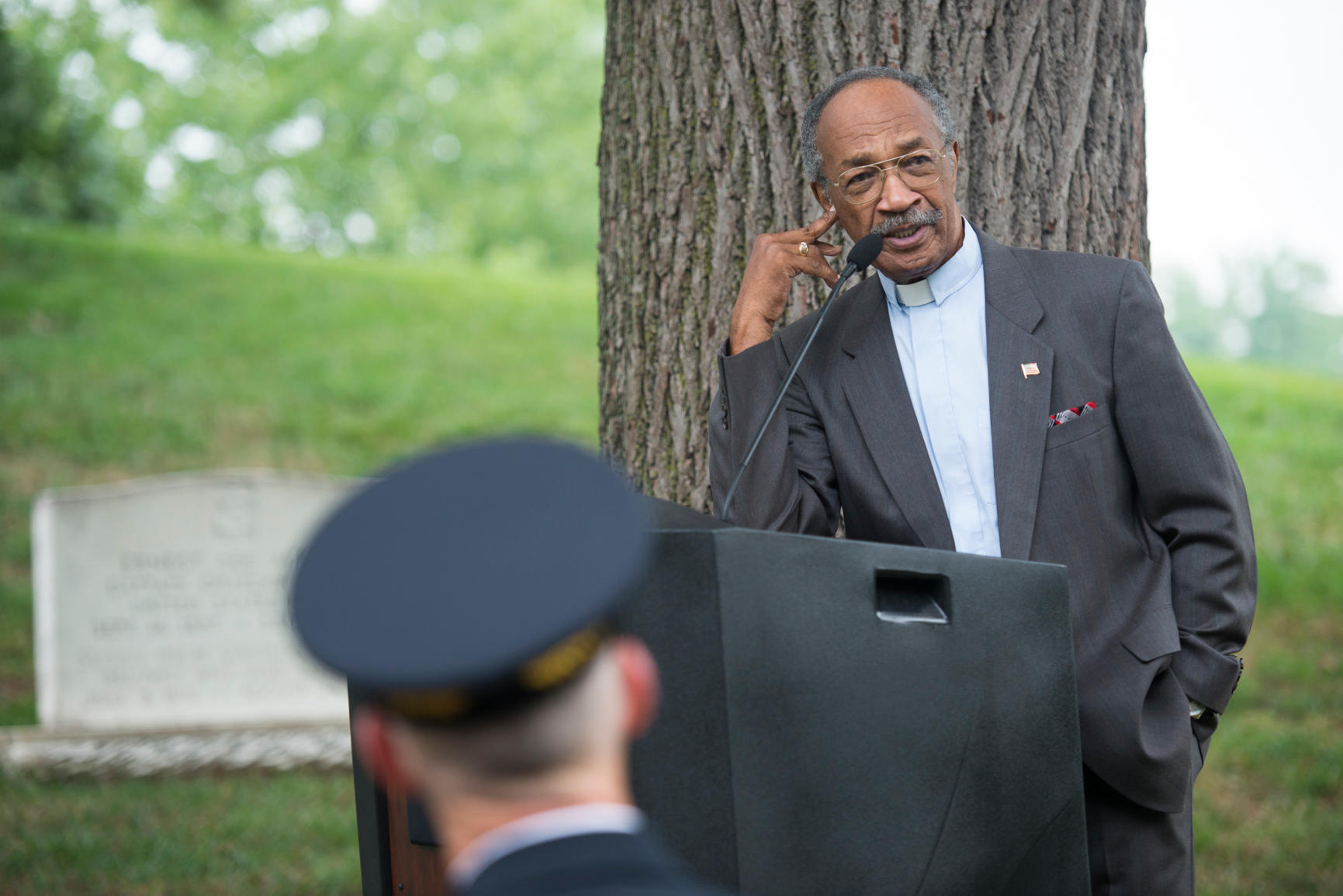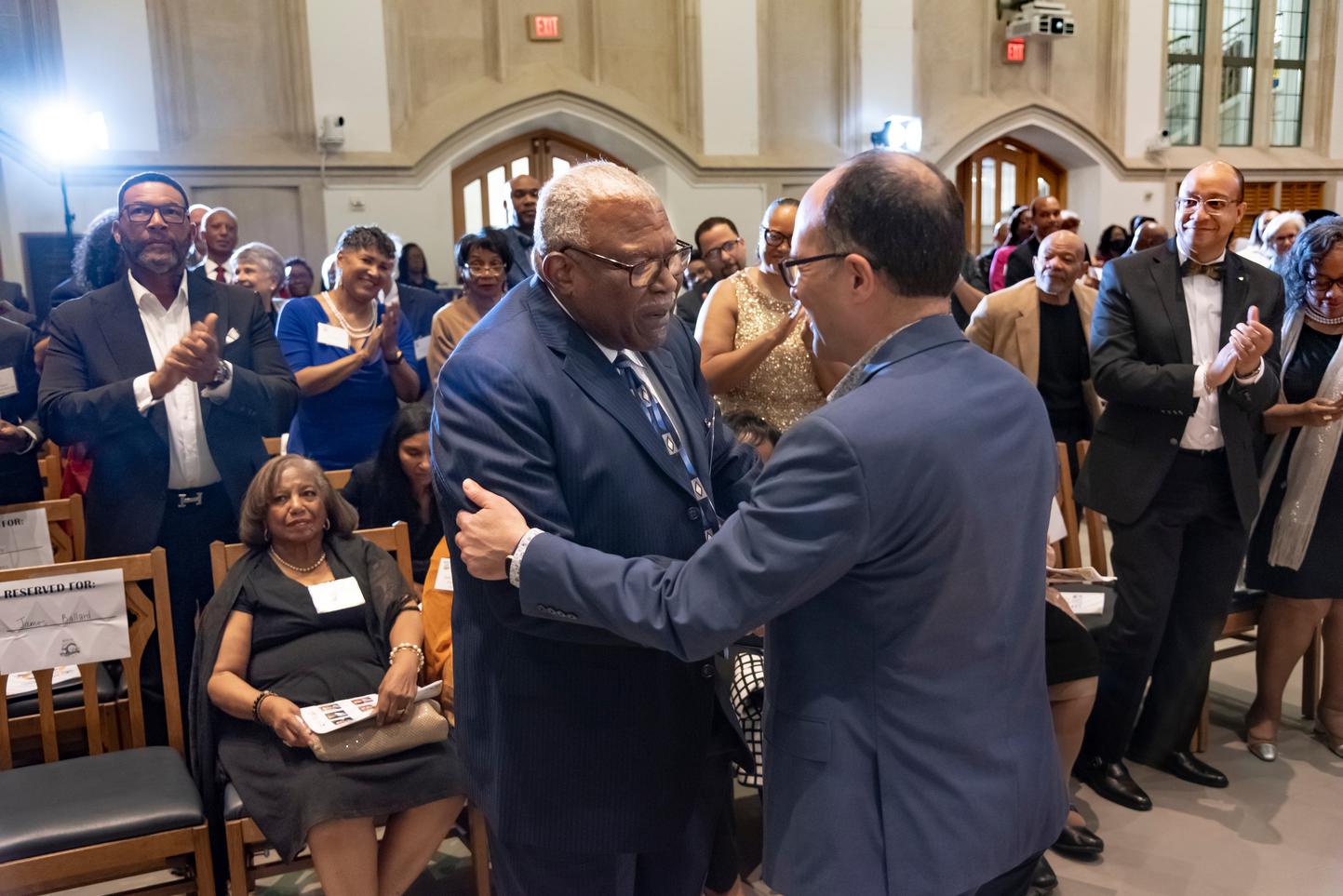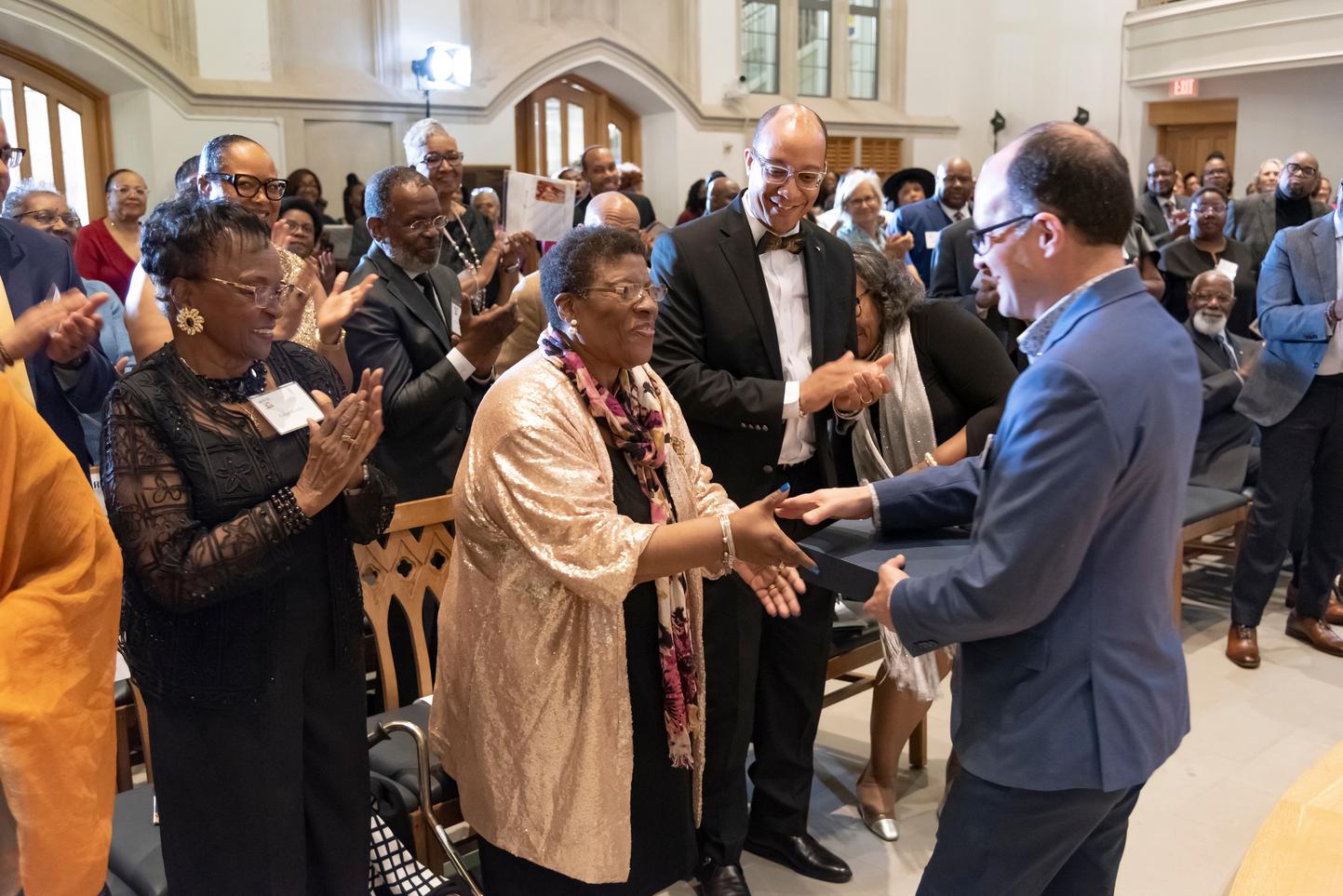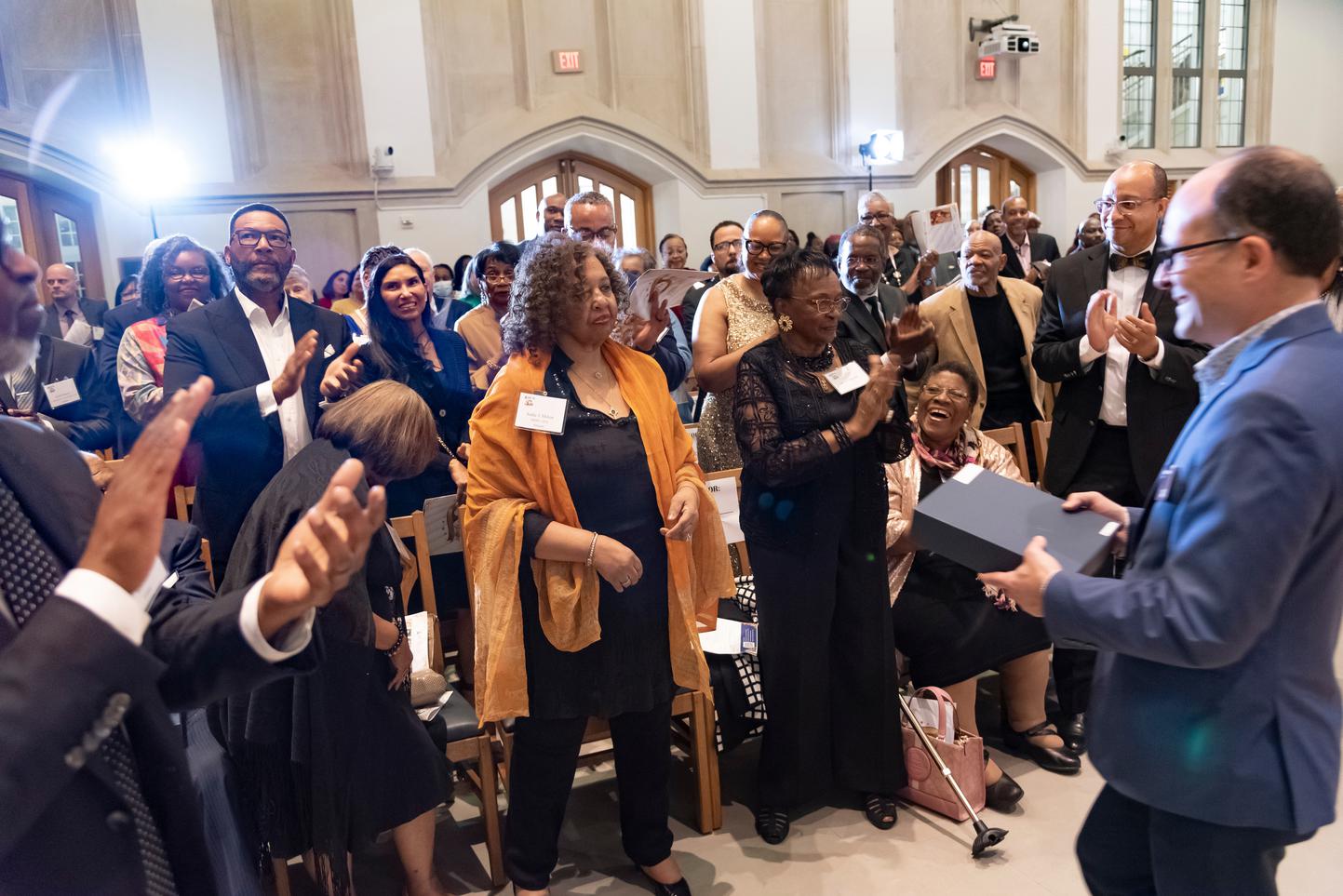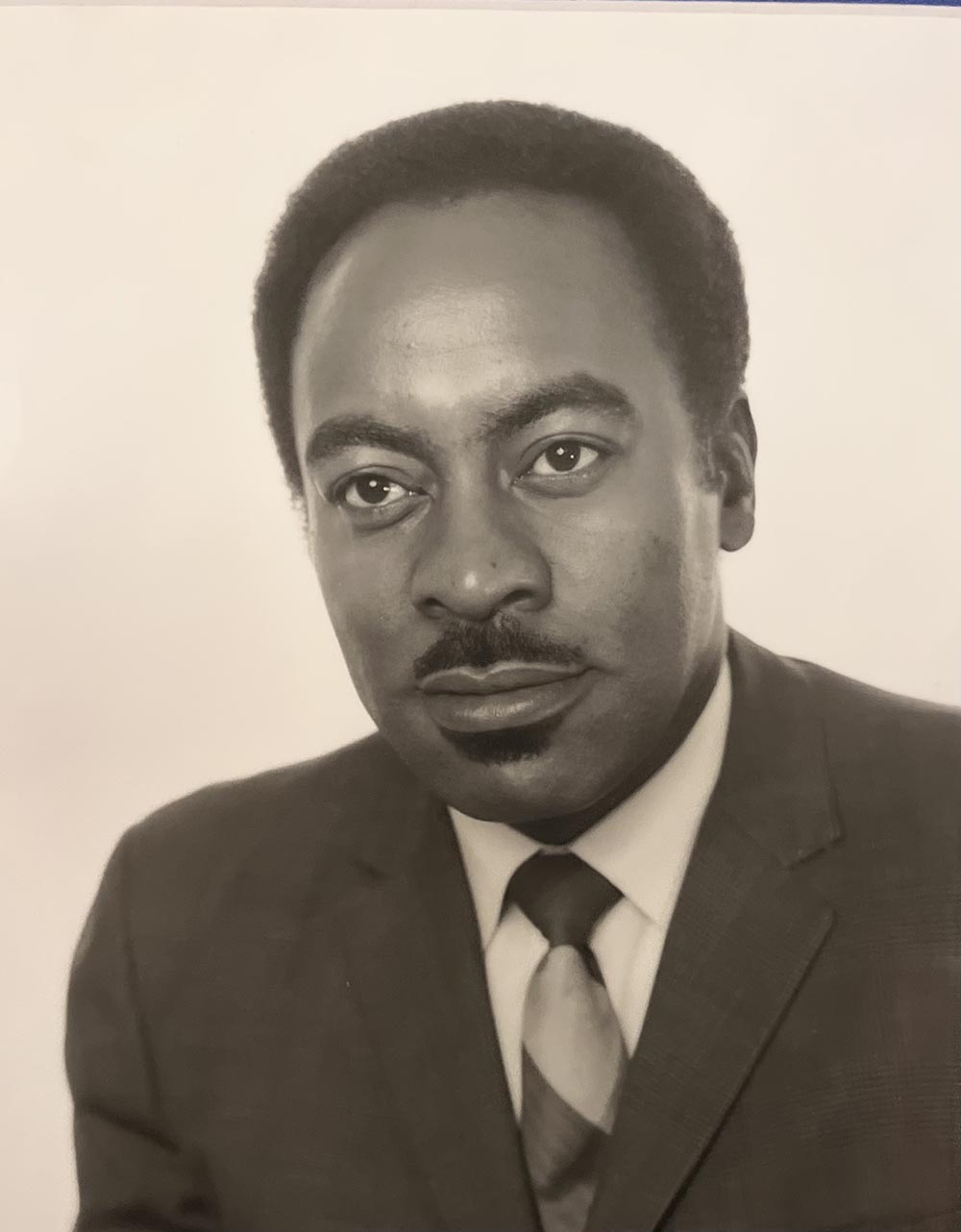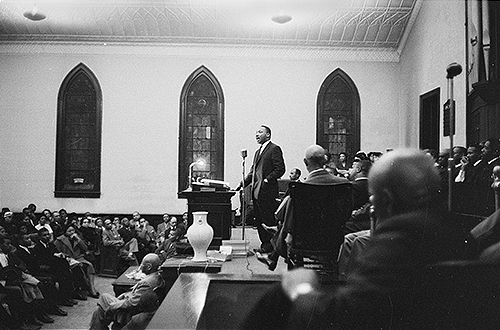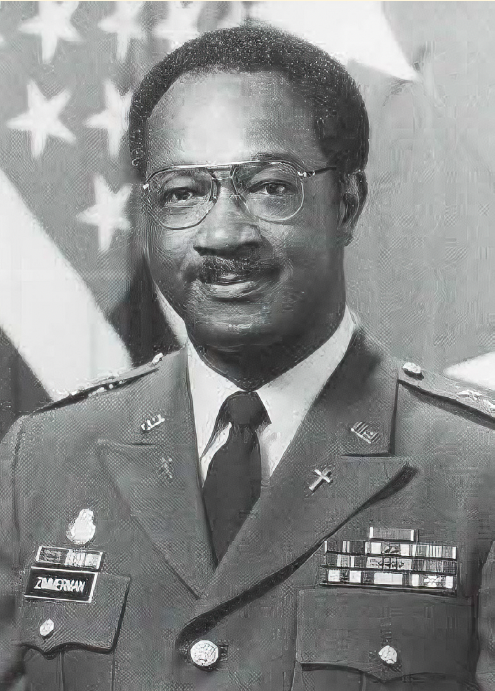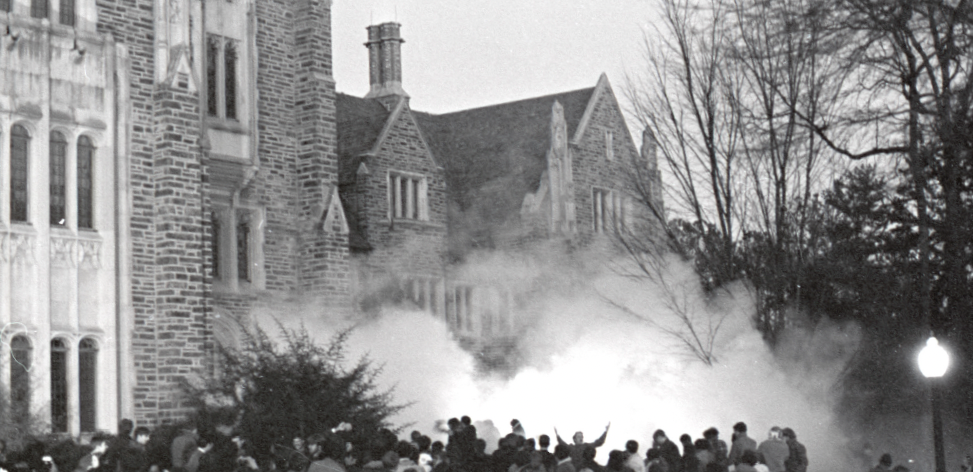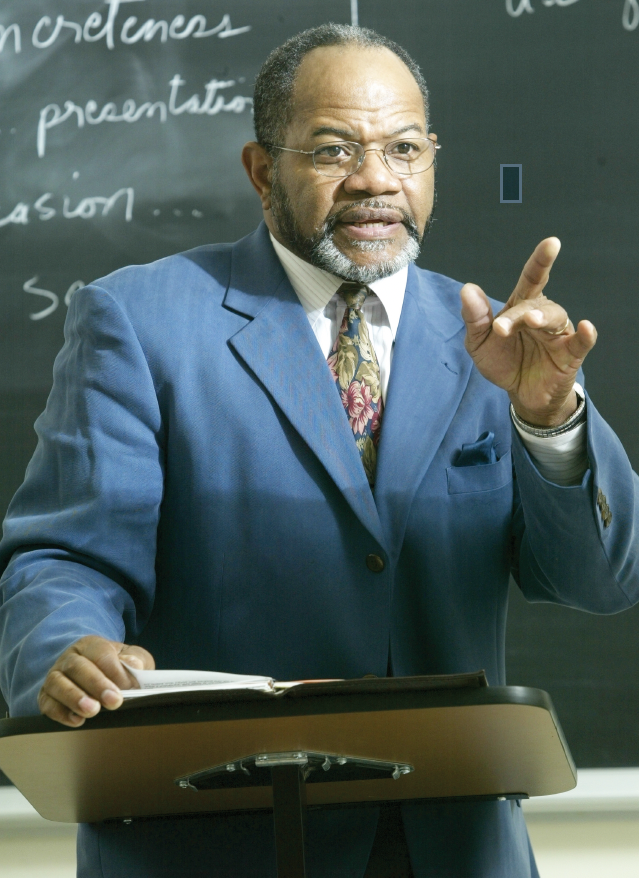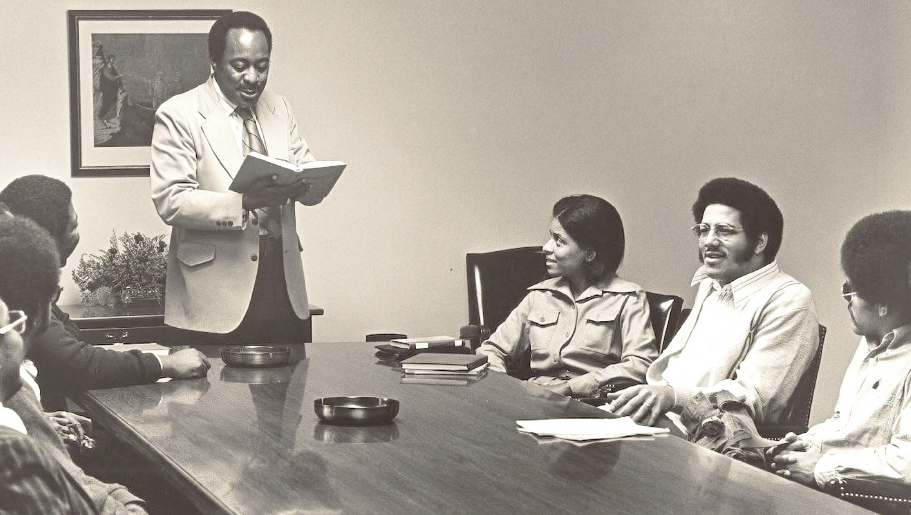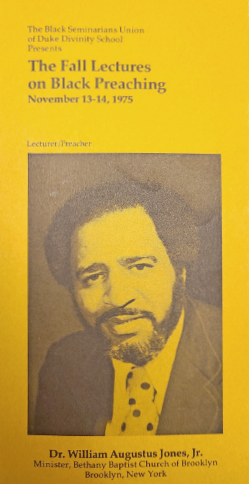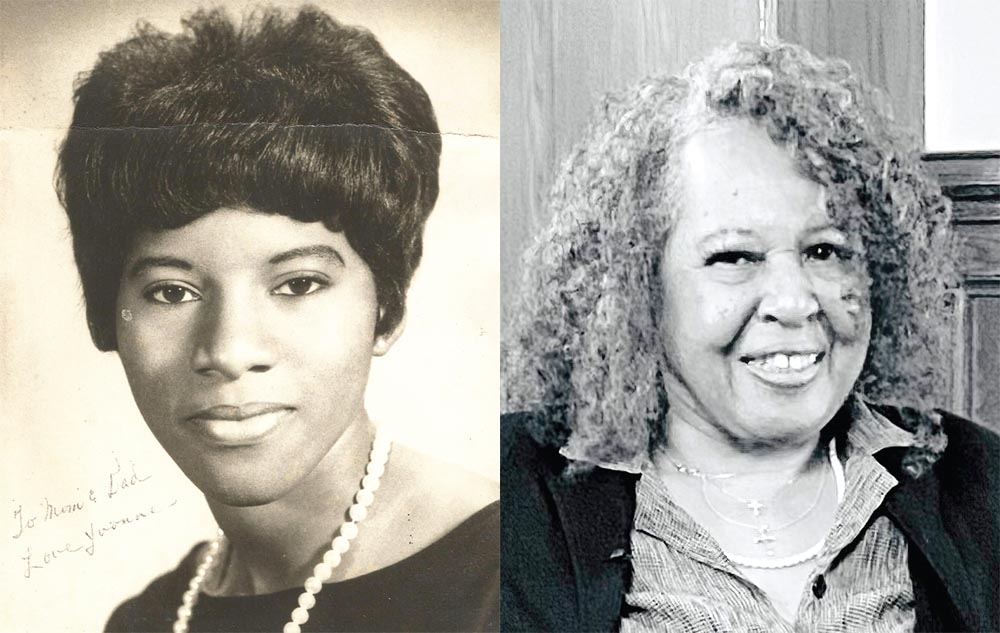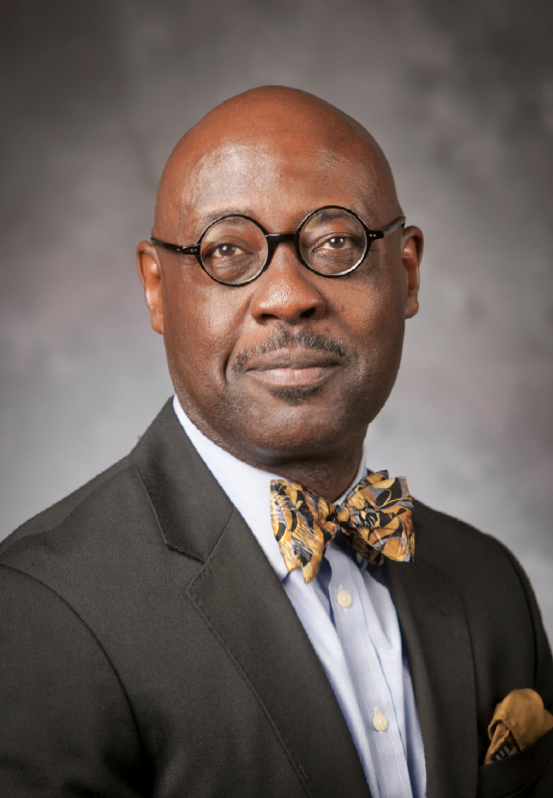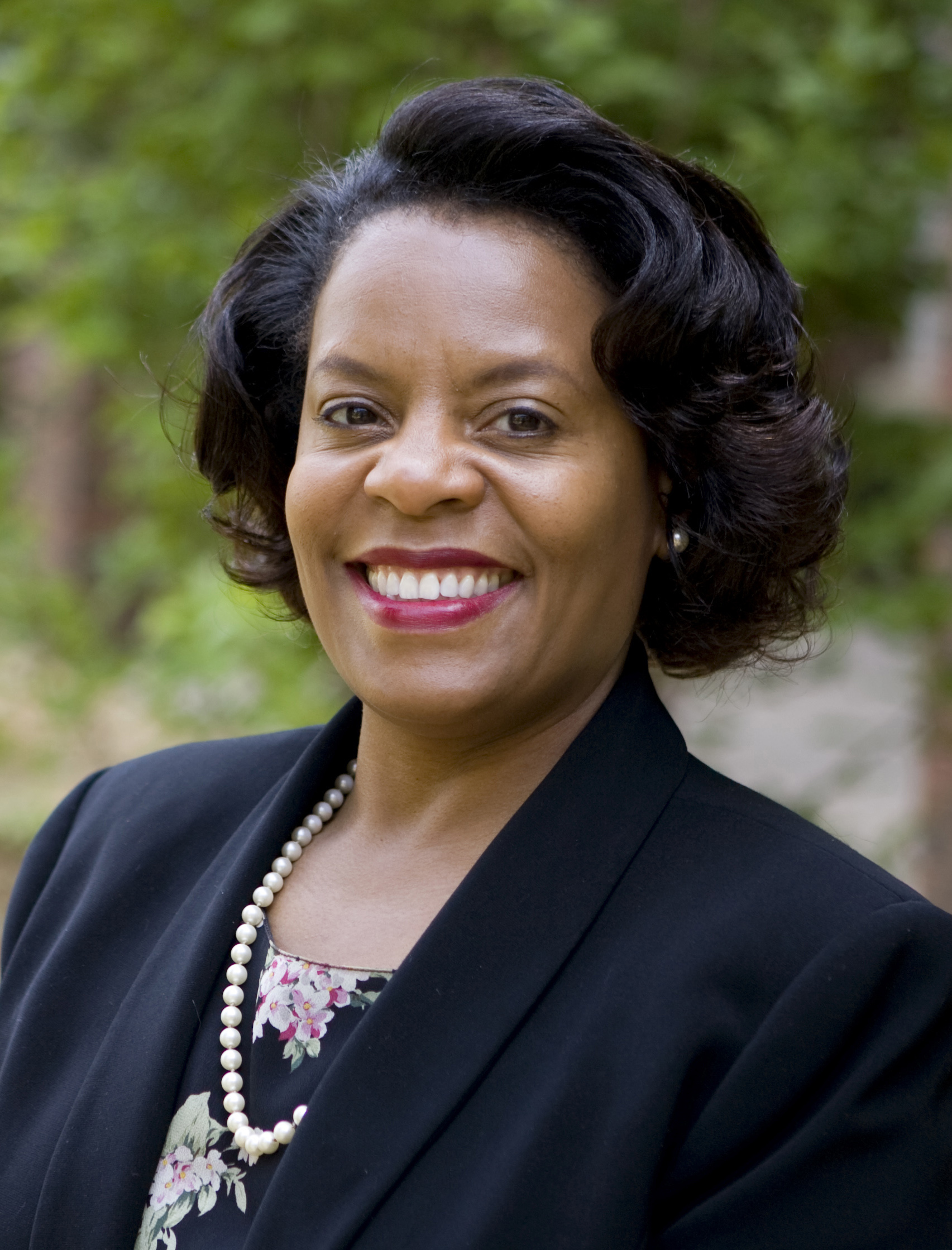The Office of Black Church Studies Celebrates 50 Years
During the 2022–2023 academic year, Duke Divinity School celebrated the 50th anniversary of the founding of the Office of Black Church Studies, with a year of events culminating in an evening celebration on April 17 featuring Grammy Award-winning gospel singer Yolanda Adams and the Martin Luther King Lecture Series on April 18 with the Rev. Dr. Cynthia L. Hale.
The Office of Black Church Studies (OBCS) was founded in 1972, the first such office at Duke University and one of the earliest Black Church offices among all U.S. theological schools. The OBCS hosts world-renowned preachers and lecturers, provides formation and pastoral care for students, and leads a variety of initiatives to develop, preserve, and share resources from the Black Church for the whole church.
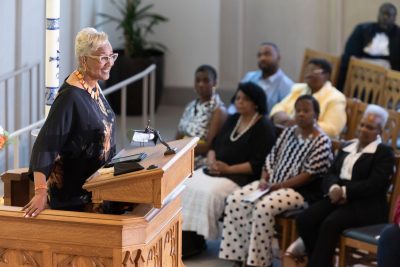
Hale preaches in Goodson Chapel as part of the Office of Black Church Studies MLK Lecture Series.
The celebration on April 17 included a premiere of a documentary about the OBCS; a concert by Adams, who also performed two songs with Duke Divinity’s Gospel Choir; and a special award recognizing key figures in the history of the OBCS.
On April 18, Hale, M.Div. ’79, the founding and senior pastor of the Ray of Hope Christian Church in Decatur, Ga., preached in Goodson Chapel and delivered a lecture.
Josefa Bethea Wall, daughter of Bishop Joseph Bethea, receives the announcement about the founding of the Bethea Fund from Hale.
OBCS 50th Honorees
— Turner
A Year of Celebration
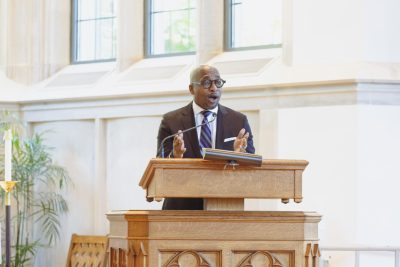
Gardner C. Taylor Lectures featuring Pastor Michael A. Walrond Jr.
OBCS hosted a number of other events through the 2022–2023 academic year to celebrate its 50th anniversary. Those events include the Gardner C. Taylor Lecture on Sept. 13, 2022 with Pastor Michael A. Walrond Jr., senior pastor of First Corinthian Baptist Church in Harlem, New York; a worship event with the Rev. Dr. Marcus D. Cosby of Wheeler Avenue Baptist Church in Houston on Nov. 30, 2022; the Believers’ Church Conference Jan. 26–28, co-hosted with Shaw University Divinity School; the annual Sankofa Alumni Preaching Series throughout the month of February; and the Pauli Murray/Nannie Helen Burroughs Lecture with Dr. Amey Victoria Adkins-Jones on March 6.
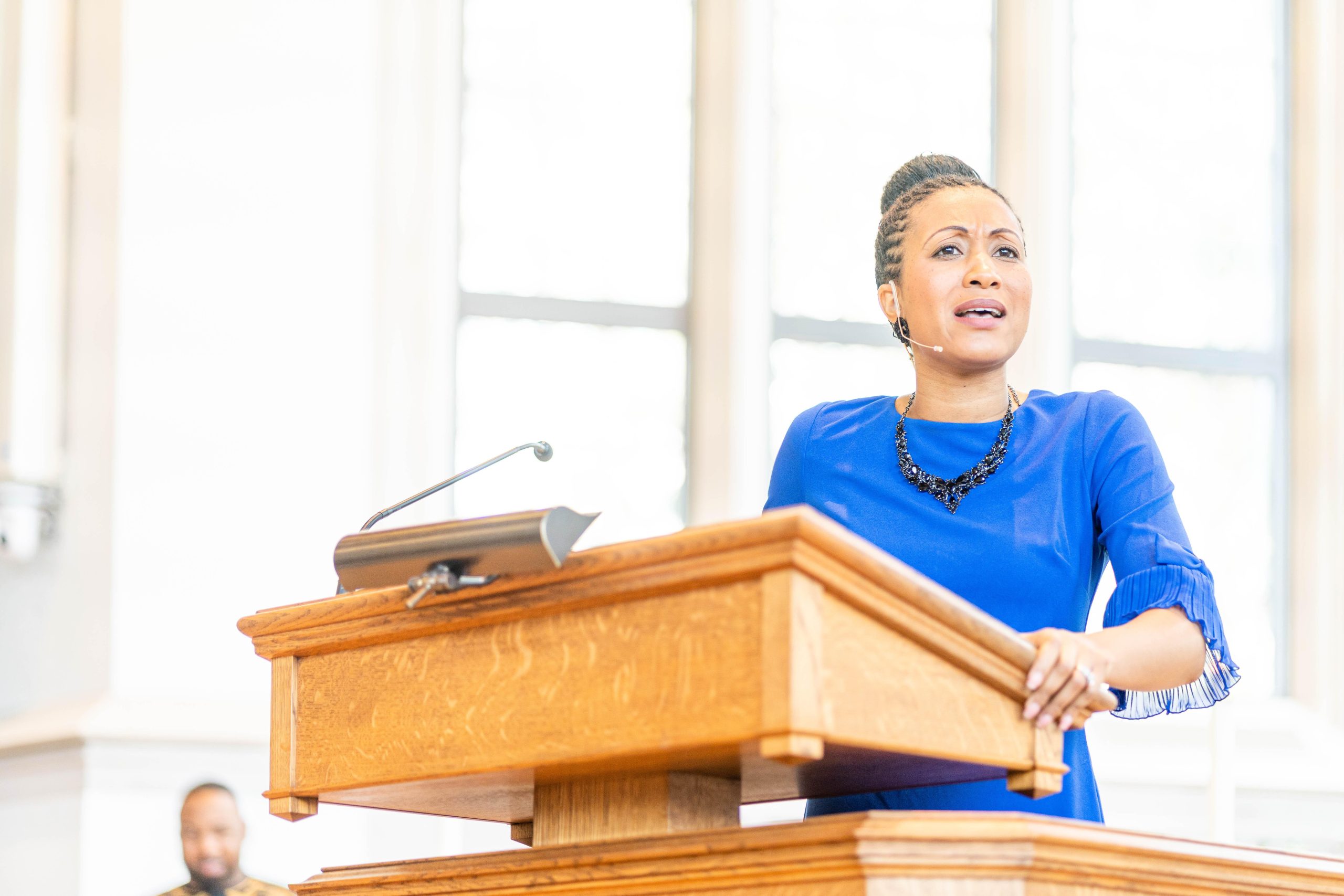
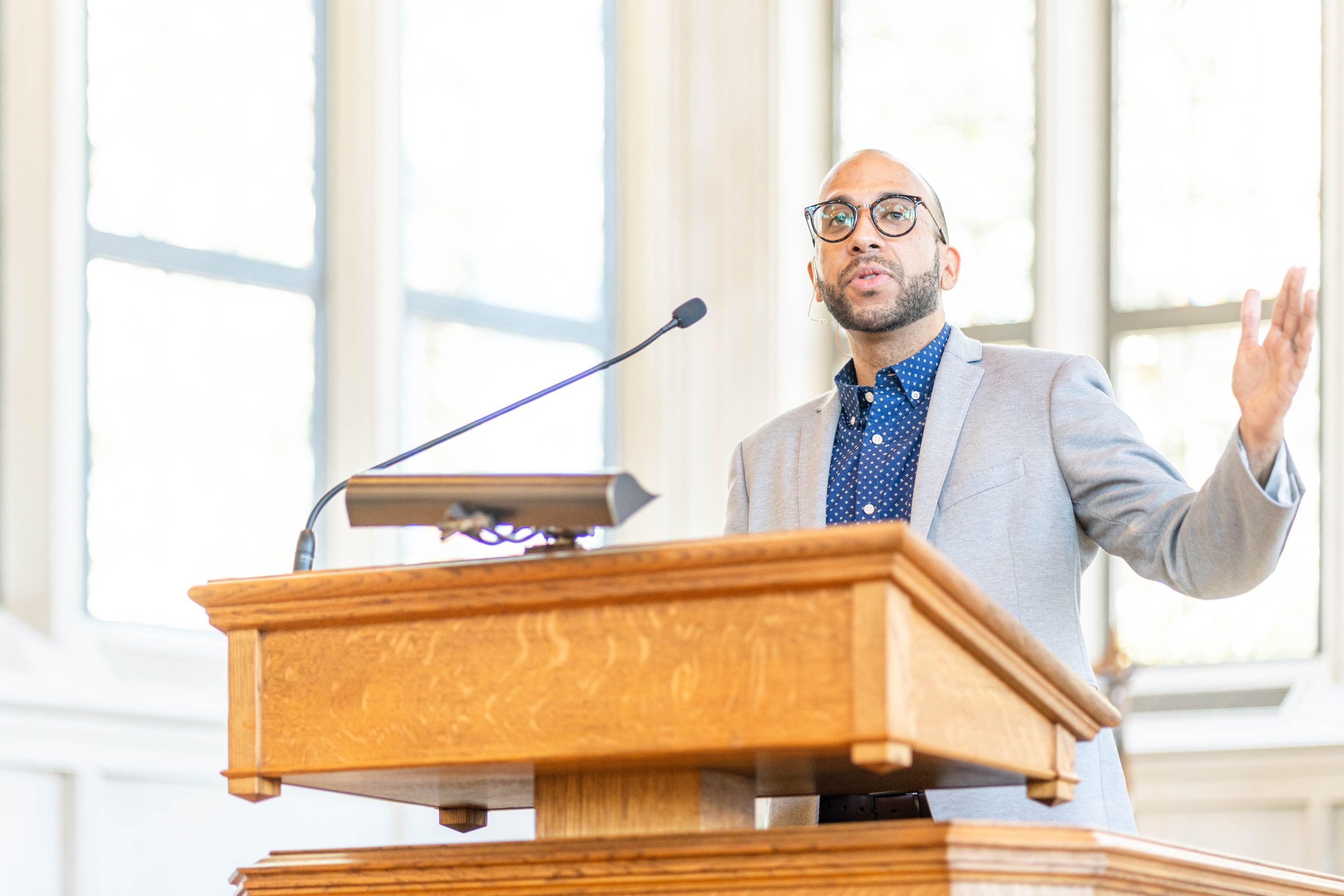
Sankofa alumni series with Daniel José Camacho, M.Div. ’17, preaching in Goodson Chapel. Camacho is a writer and acquisitions editor at Fortress Press.
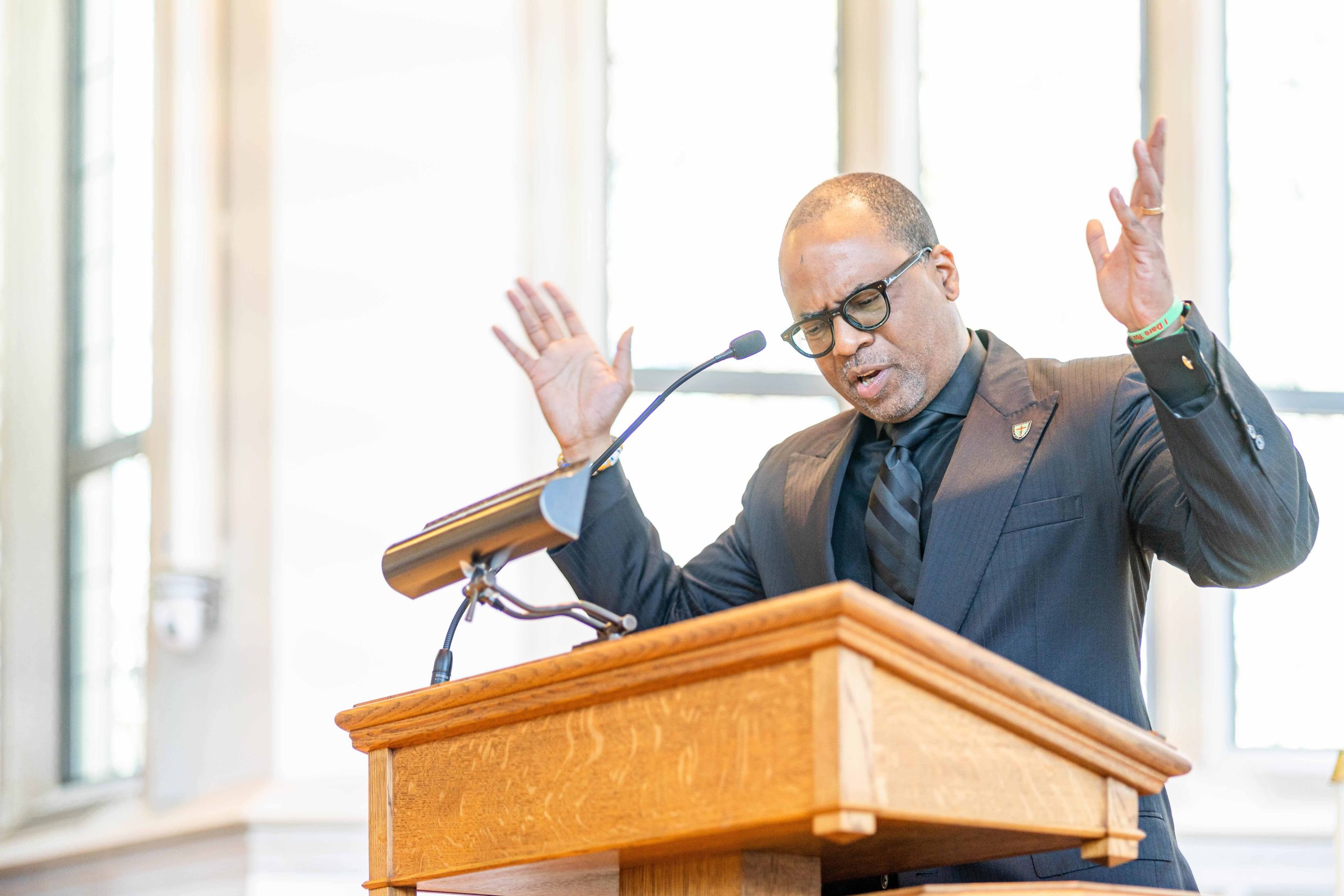
Jay Augustine, D.Min. ’20, preaches in Goodson Chapel during the 2023 Sankofa Series. Augustine is the missional strategist for the Divinity School’s Center for Reconciliation.
